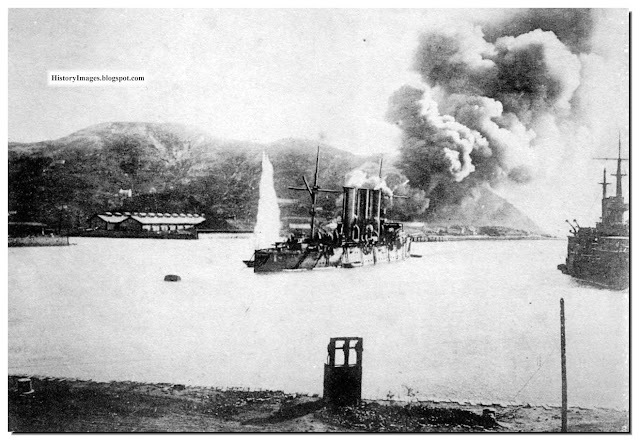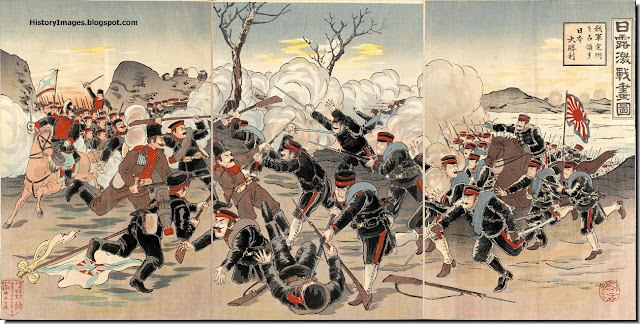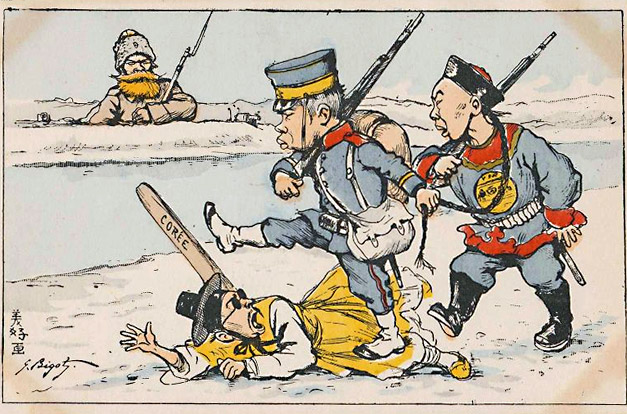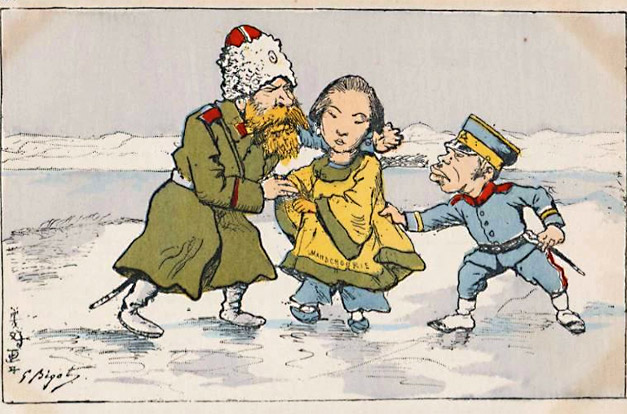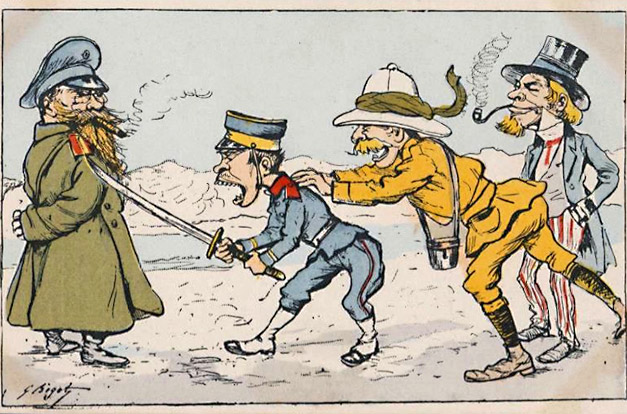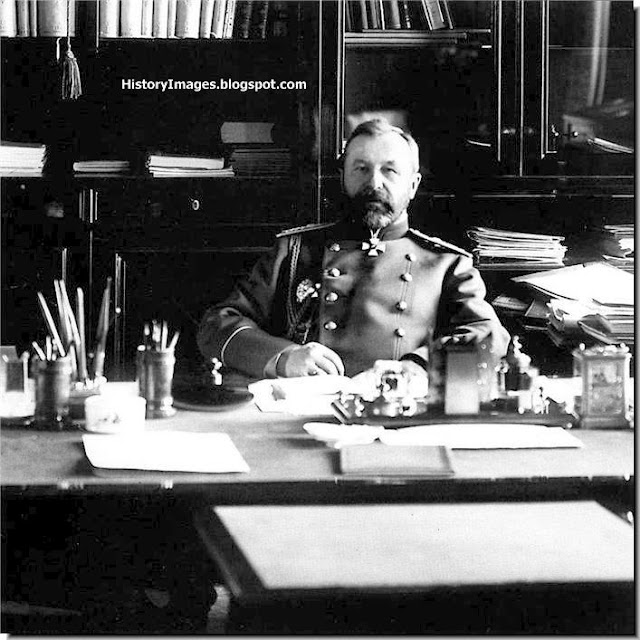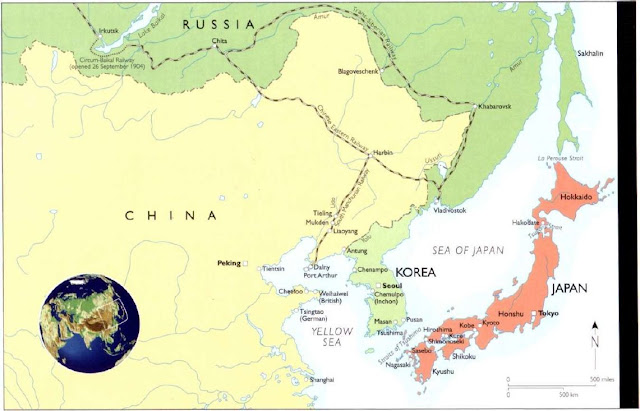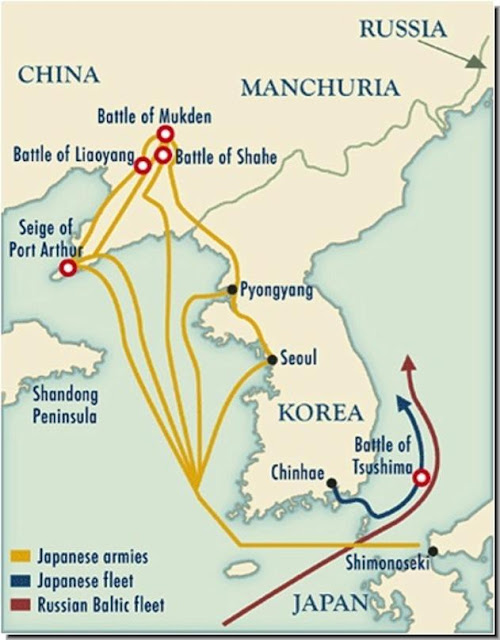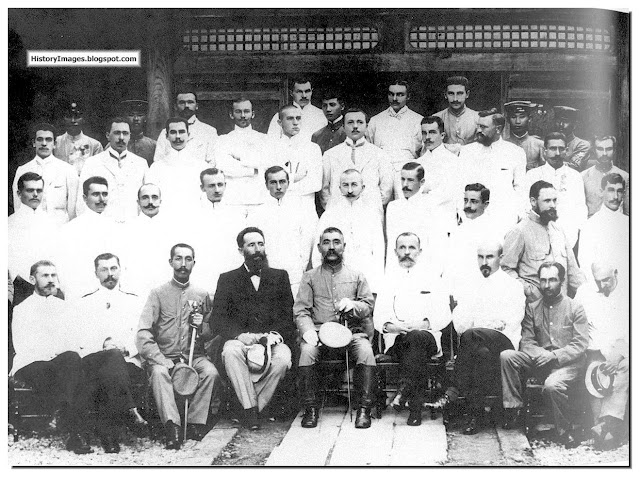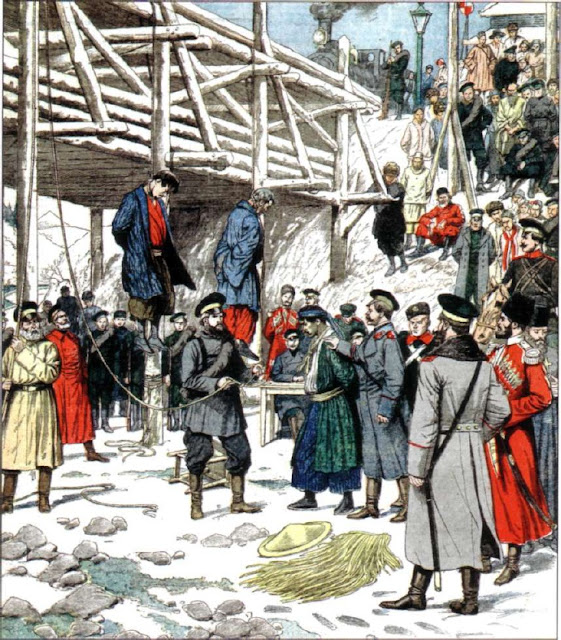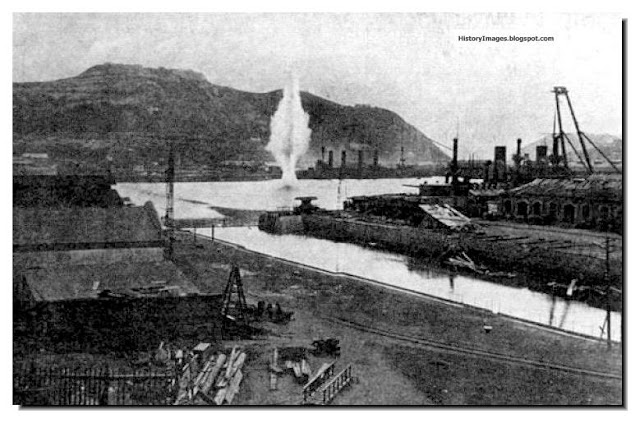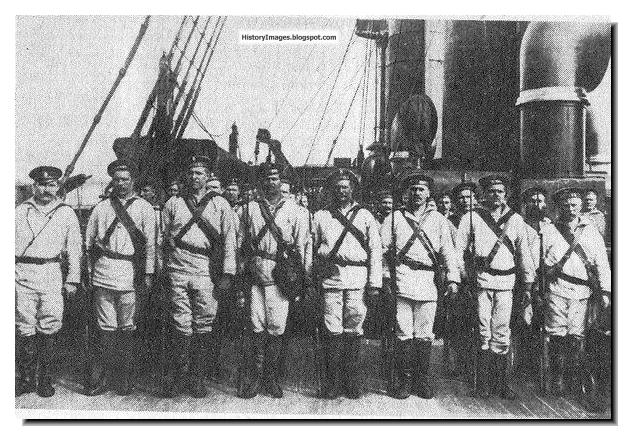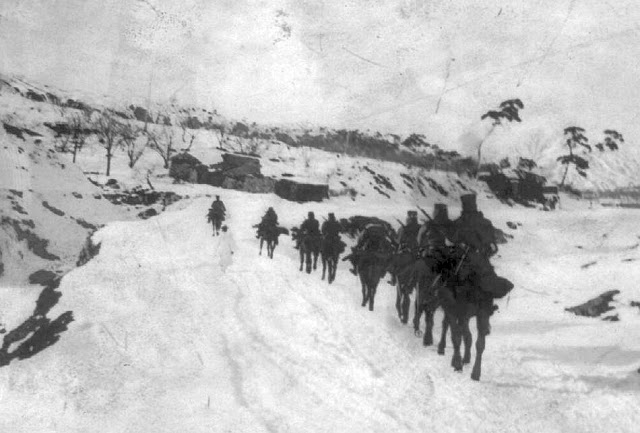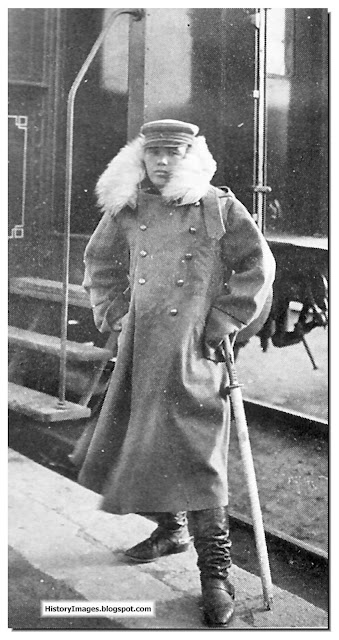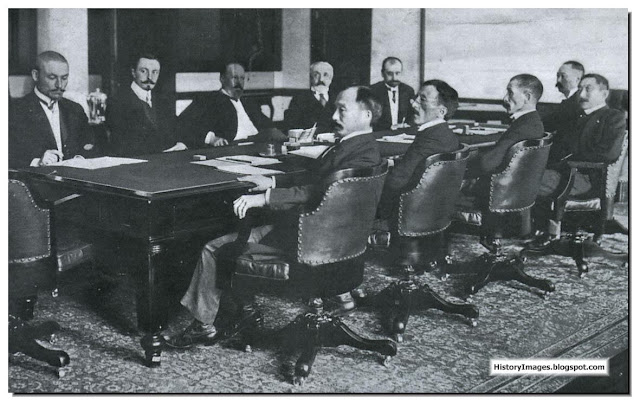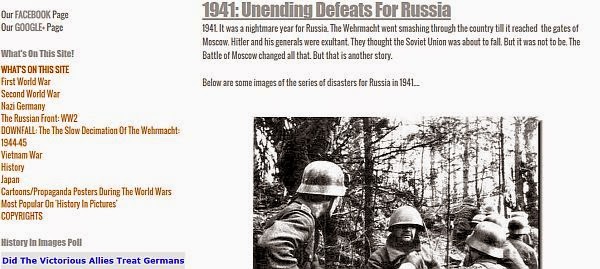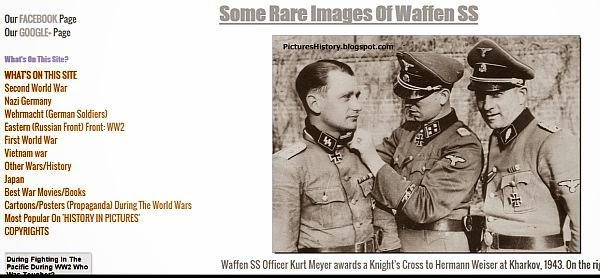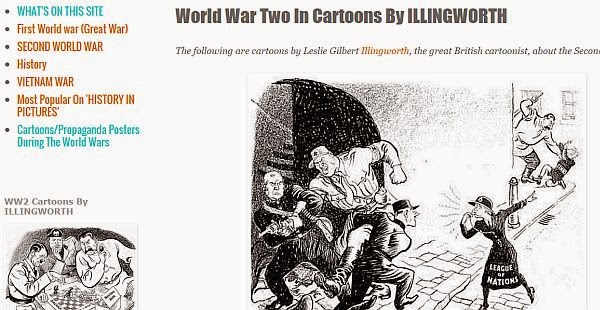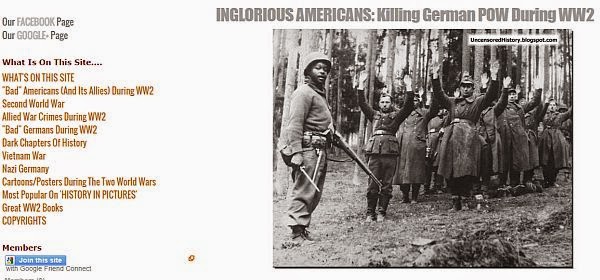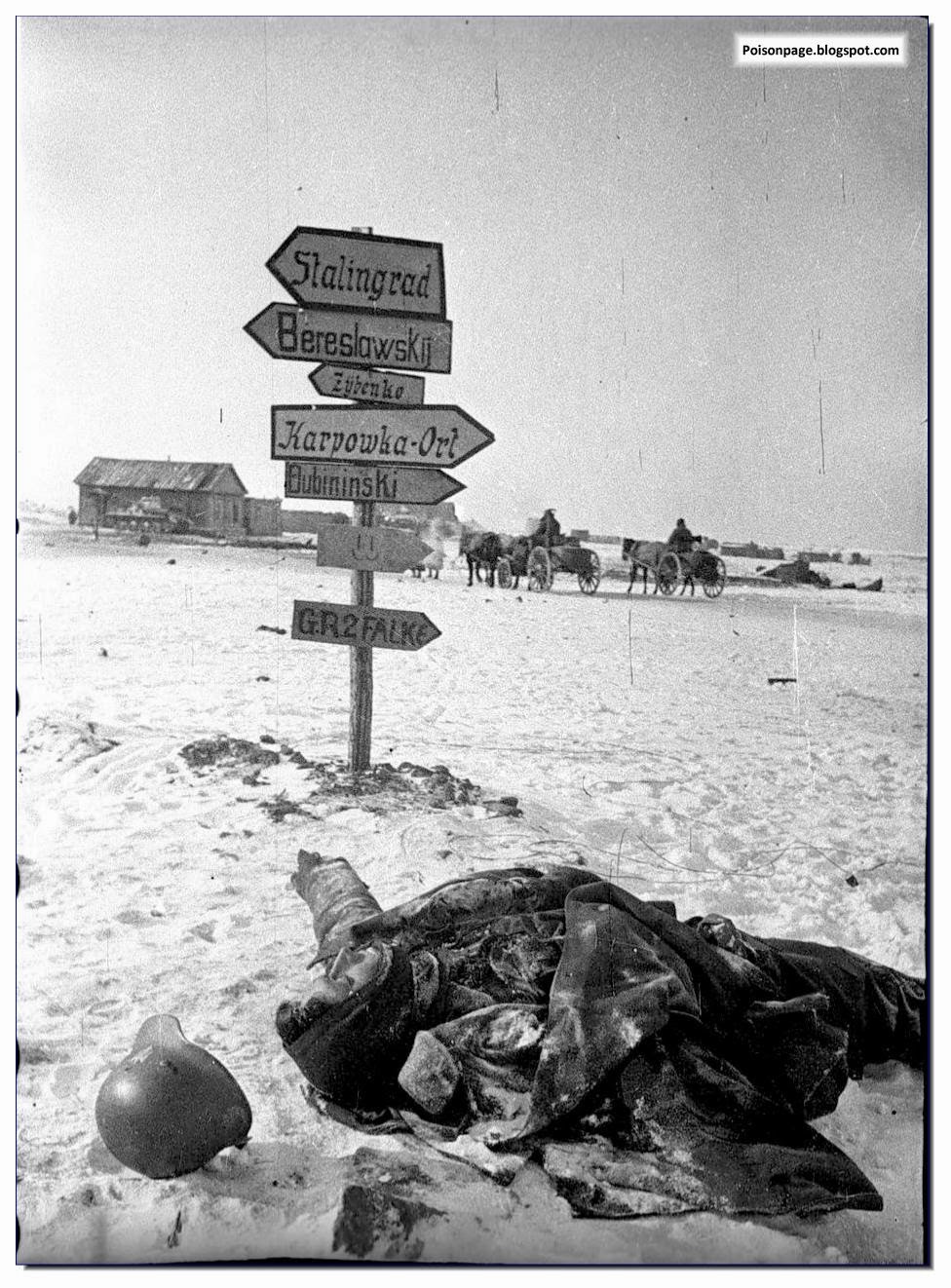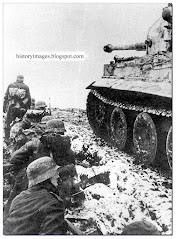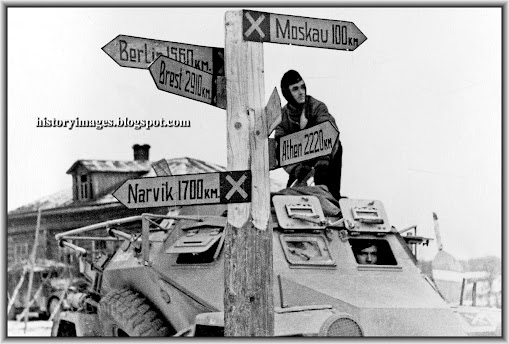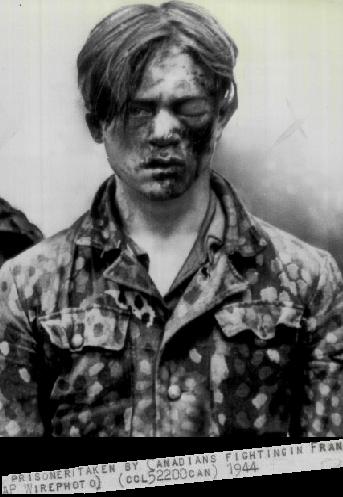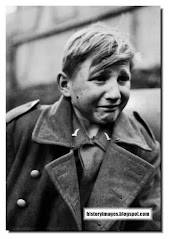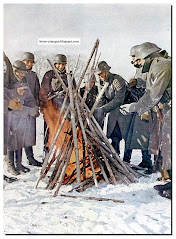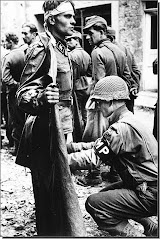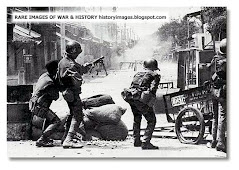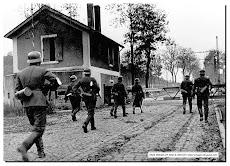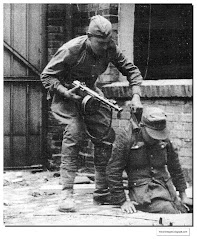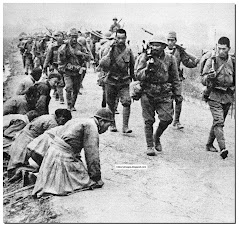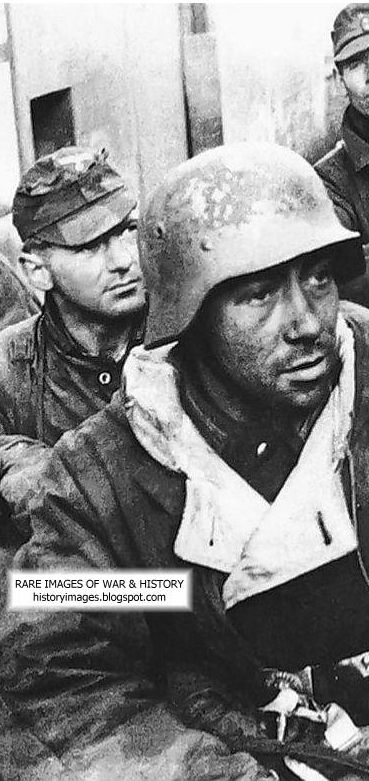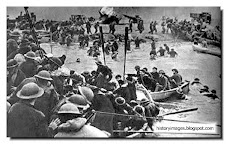Russian ships fired upon by Japanese artillery at Port Arthur.
The Russo-Japanese War of 1904-5 is important because it was the first time that an Asian power had thrashed an European country. It announced the arrival of Japan as a power to reckon with.
It all began over control over Manchuria and Korea. Japan then attacked and occupied Port Arthur. To teach the Japanese a lesson the Russian Baltic Fleet made a long voyage only to have many of its ships sunk by the Japanese.
Russia's defeat was complete.
One of the over-confident pre-war Russian cartoons
RUSSO-JAPANESE WAR: CAUSES
http://www.russojapanesewar.com/intro.html
RUSSO-JAPANESE WAR: CAUSES
http://www.russojapanesewar.com/intro.html
The Russo-Japanese War of 1904-05, which began with the Japanese naval attack on Port Arthur, had its roots in the simultaneous determination of both Japan and Russia to develop 'spheres of influence' in the Far East, mainly at the expense of China.
Japan fought a very successful war against the crumbling Chinese Empire in 1894-95 and imposed a severe treaty. Japan demanded from China a heavy war indemnity, the island of Formosa, and Port Arthur and its hinterland. The European powers, while having no objection to the indemnity, did feel that Japan should not gain Port Arthur, for they had their own ambitions in that part of the world. Russia persuaded Germany and France to join her in applying diplomatic pressure on the Japanese, with the result that Japan was obliged to relinquish Port Arthur. Two years later Saint Petersburg forced the Chinese into leasing Port Arthur to Russia, together with the Liaotung Peninsula on which it stood. For Russia this meant the acquisition of an ice-free naval base in the Far East to supplement Vladivostok. For Japan it was a case of adding insult to injury.
The Boxer Rebellion of 1900 caused the European powers and Japan to send troops to China to suppress the rebels. When the fighting was over, Russian troops were occupying Manchuria. Russia promised to withdraw these forces by 1903, but failed to do so, wishing to hold Manchuria as a springboard for further expansion of her interest in the Far East. Meanwhile Japan was heavily engaged in Korea, successfully increasing her influence in that country. Russia also had interest in Korea, and although at first Russians and Japanese managed to peacefully coexist, it was not long before tensions on both sides led to hostilities.
Negotiations between the two nations began in 1901 but made little headway. Japan then strengthened her position by forming an alliance with Britain. The terms stated that if Japan went to war in the Far East, and a third power entered the fight against Japan, then Britain would come to the aide of the Japanese.
During her negotiations with Japan, Russia did not expect the Japanese to go to war. After all, Japan was a newly emergent country, whose naval officers might have been trained in Britain and her army officers in Germany, but several of those officers had begun their careers wearing armor and brandishing swords. The Russian army was the world's most powerful, or at least that is what the Russians believed.
But the Japanese had other ideas. Japan knew that they could not win a long war fought over a vast expanse, but they could win a short localized war.
The roots of the conflict. Korea.
Manchuria.
1904. Japan attacks Russia as Japan's ally Britain tries to stop it. America looks on amused
The man responsible for Russia's defeat in the Russo Japanese War of 1904-5, General Kuropatkin. He was the Russian Imperial Minister of War (1898–1904) who is often held responsible for major Russian drawbacks in the Russian-Japanese War, notably the Battle of Mukden and the Battle of Liaoyang. Kuropatkin was heavily involved in the fiasco of the Russian land forces during the war. Although the rationale of his military approach was wage a war of attrition and to avoid an offensive until the Trans-Siberian Railway brought sufficient troops and materiel, his cautiousness and hesitancy markedly influenced the repeated Russian defeats. Military historians consider his indecisiveness and organizational deficiencies in directing large-scale military operations as a major element in the Russian defeat.
------------------------------------------------
RUSSO-JAPANESE WAR IN SHORT
Russo-Japanese War, (1904–05), military conflict in which a victorious Japan forced Russia to abandon its expansionist policy in the Far East, becoming the first Asian power in modern times to defeat a European power.
The Russo-Japanese War developed out of the rivalry between Russia and Japan for dominance in Korea and Manchuria. In 1898 Russia had pressured China into granting it a lease for the strategically important port of Port Arthur (now Lü-shun), at the tip of the Liaotung Peninsula, in southern Manchuria. Russia thereby entered into occupation of the peninsula, even though, in concert with other European powers, it had forced Japan to relinquish just such a right after the latter’s decisive victory over China in the Sino-Japanese War of 1894–95. Moreover, in 1896 Russia had concluded an alliance with China against Japan and, in the process, had won rights to extend the Trans-Siberian Railroad across Chinese-held Manchuria to the Russian seaport of Vladivostok, thus gaining control of an important strip of Manchurian territory.
However, though Russia had built the Trans-Siberian Railroad (1891–1904), it still lacked the transportation facilities necessary to reinforce its limited armed forces in Manchuria with sufficient men and supplies. Japan, by contrast, had steadily expanded its army since its war with China in 1894 and by 1904 had gained a marked superiority over Russia in the number of ground troops in the Far East.
After Russia reneged in 1903 on an agreement to withdraw its troops from Manchuria, Japan decided it was time to attack.
The war began on Feb. 8, 1904, when the main Japanese fleet launched a surprise attack and siege on the Russian naval squadron at Port Arthur. In March the Japanese landed an army in Korea that quickly overran that country. In May another Japanese army landed on the Liaotung Peninsula, and on May 26 it cut off the Port Arthur garrison from the main body of Russian forces in Manchuria. The Japanese then pushed northward, and the Russian army fell back to Mukden (now Shen-yang) after losing battles at Fu-hsien (June 14) and Liao-yang (August 25), south of Mukden.
In October the Russians went back on the offensive with the help of reinforcements received via the Trans-Siberian Railroad, but their attacks proved indecisive owing to poor military leadership.
The Japanese had also settled down to a long siege of Port Arthur after several very costly general assaults on it had failed. The garrison’s military leadership proved divided, however, and on Jan. 2, 1905, in a gross act of incompetence and corruption, Port Arthur’s Russian commander surrendered the port to the Japanese without consulting his officers and with three months’ provisions and adequate supplies of ammunition still in the fortress.
The final battle of the land war was fought at Mukden in late February and early March 1905, between Russian forces totaling 330,000 men and Japanese totaling 270,000. After long and stubborn fighting and heavy casualties on both sides, the Russian commander, General A.N. Kuropatkin, broke off the fighting and withdrew his forces northward from Mukden, which fell into the hands of the Japanese. Losses in this battle were exceptionally heavy, with approximately 89,000 Russian and 71,000 Japanese casualties.
The naval Battle of Tsushima finally gave the Japanese the upper hand in the conflict. The Japanese had been unable to secure the complete command of the sea on which their land campaign depended, and the Russian squadrons at Port Arthur and Vladivostok had remained moderately active. But on May 27–29, 1905, in a battle in the Tsushima Strait, Admiral Tōgō Heihachirō’s main Japanese fleet destroyed the Russian Baltic Fleet, which, commanded by Admiral Z.P. Rozhestvensky, had sailed in October 1904 all the way from the Baltic port of Liepāja to relieve the forces at Port Arthur and at the time of the battle was trying to reach Vladivostok.
Japan was by this time financially exhausted, but its decisive naval victory at Tsushima, together with increasing internal political unrest throughout Russia, where the war had never been popular, brought the Russian government to the peace table.
President Theodore Roosevelt of the United States served as mediator at the peace conference, which was held at Portsmouth, N.H., U.S. (Aug. 9–Sept. 5, 1905). In the resulting Treaty of Portsmouth, Japan gained control of the Liaotung Peninsula (and Port Arthur) and the South Manchurian railroad (which led to Port Arthur), as well as half of Sakhalin Island. Russia agreed to evacuate southern Manchuria, which was restored to China, and Japan’s control of Korea was recognized.
Within two months of the treaty’s signing, a revolution compelled the Russian tsar Nicholas II to issue the October Manifesto, which was the equivalent of a constitutional charter.
Russian arms captured by the Japanese at Port Arthur
Russian officers of the Second Pacific Squadron in captivity. With them are two Japanese officers (with swords).
Russians hanging Chinese suspected of spying.
JAPANESE WERE BETTER IN THE SPYING BUSINESS
The Japanese, by contrast,employed an extensive network of spies.They were mostly Chinese, under the controlof Japanese officers disguised as Chinese;and they also included disaffected, mainly non-Russian, citizens of the Russian Empire.They supplied geographical information on all of Manchuria and adjacent areas of theRussian Far East, and the Japanese were careful to pay spies far better than the Russians did, thereby acquiring a useful number of double agents
Japanese executing Chinese suspected of spying for Russia.
Japanese shelling on Port Arthur
Damaged armored cruiser "Russia" in Vladivostok after the battle in the Korean Strait. August 1904
Flooded Russian cruiser 'Novik'. August 10, 1904. Near Sakhalin. Novik tried to break out of Port Arthur but was hit by Japanese cruisers.
Russian sailors aboard the Gunship 'Rurik'
Japanese cavalry scout around in Ping Yang in 1904
Japanese officer with a Katana in 1904. Historically were one of the traditionally made Japanese swords that were worn by the samurai class of feudal Japan, also commonly referred to as a "samurai sword". Modern versions of the katana are sometimes made using non-traditional materials and methods
Russian soldiers and Chinese musicians in Manchuria in 1905
Russian officers in Manchuria in 1905
Russian soldiers with Japanese POW
Japanese sentries replacing Russian soldiers at the outer fort at Port Arthur after Russia lost.
Russian ships sunk at Port Arthur. December 1904. Seen in the picture are Russian battleship "victory" and a rank cruiser "Pallada".
Japanese soldiers towing artillery shells
Japanese soldiers pulling their artillery gun.
Japanese officers
Japanese soldiers ready to attack
Japanese heavy guns fire on Port Arthur
Russian Czar Nicholas with his troops
Japanese troops cross the Yalu River
Russia sends fresh troops from Siberia to the Far east.
The Japanese give a proper burial to a slain Russian officer. This surprised the Russians who considered the Japanese to be barbarians
Russian gun near Sanchenzy
Burial ceremony of a dead Russian officer
Battle of Liaoyang. Japanese general Kuroki and his chief of staff Shigeta Fujii
WHO WAS KUROKI?
Count Tamemoto Kuroki was a general in the Imperial Japanese Army. He was the head of the Japanese First Army during the Russo-Japanese War; and his forces enjoyed a series of successes during the Manchurian fighting at the Battle of Yalu River, the Battle of Liaoyang, the Battle of Shaho and the Battle of Mukden.
Russian soldiers cross a river with a gas balloon
Japanese army landing on the Liaodong Peninsula
Battle Of Tsushima. The Russian nightmare.
BATTLE OF TSUSHIMA: BUNGLING BY A DYING ROTTEN REGIME
http://www.cityofart.net/bship/tsushima.html
Seldom has there been so crushing and absolute a military victory. Of the 38 warships and ten auxiliaries that had set out from the Baltic in October, only three made it to Vladivostok; four out of the five new Russian capital ships were sunk; in all 22 Russian ships were sunk and seven surrendered. 4,830 Russians were killed and about 6,000 taken prisoner; 1,862 were interned in neutral ports and a further 1,227 made it to Vladivostok or returned to Madagascar. The Japanese lost three torpedo boats; their 'butcher's bill' came to 116 killed and 538 wounded.
The lopsided victory at Tsushima was looked upon as, in part, a victory for British naval technology, although the brilliant tactics of Adm. Togo and the superior discipline and gunnery of his command deserve most of the credit. They stood in sharp contrast to the bungling Russians. For in all respects -- from the hare-brained inspiration of the Tsar to the hapless leadership of his court-favorite commander; from the slapdash shipbuilding to the safety short-cuts in the service; from the diplomatic bungling to the hallucinations that passed for intelligence -- the catastrophic voyage to Tsushima was one great bundle of Russian cock-ups, from top to bottom. This bungling reflected a rotten regime on its last legs: self-absorbed, corrupt, and thoroughly out of touch with reality.
Coming almost exactly 100 years after Nelson's Battle of Trafalgar, Tsushima was, like Trafalgar, a decisive victory accomplished against a nominally superior force.
Russian general Stoessel with his officers with Japanese general Nogi after the surrender at Port Arthur. Stoessel was in charge of the defense of Port Arthur.
DISASTER AT TSHUSHIMA
http://www.russojapanesewar.com/tsushima.html
The difficulties facing Rear Admiral Zinovi Petrovitch Rozhdestvenski were unprecedented. Coal-fired warships were not designed for 18,000-mile journeys without the benefit of extensive dockyard facilities along the way. Their reciprocating engines pounded themselves to pieces over long periods of time, unless run at their slowest speeds, and were prone to breakdowns. Their steam boilers needed frequent cleaning that made the heat of the tropics, especially for the Russian crewman, an unbearable hell.
Raw crews, many of whom had never sailed before and who felt that the war was already lost, manned the ships. Others were plotting revolution. There was a shortage of engineers forcing the commandeering of many from private shipping firms. Most of the Baltic Fleet was made up of men whose love of home was stronger than their sense of duty. Gunnery and ship handling were things of mystery. Nothing went right during two weeks of practice. Ships collided with each other, and the gunners seemed hopeless. Rozhdestvenski's optimism was fading.
Coaling for the long voyage would be another problem. Coal had been declared contraband, something the Japanese government had foreseen and prepared for before the war. For years the Japanese had been purchasing large quantities of the practically smokeless Cardiff Coal. The Russians were not.
Japan's ally, Britain, would not sell Russia even a pound of her fine Welsh coal. Anxious to keep Russia in the war, for as long as possible, Kaiser Wilhelm II eventually agreed to help. With German bases few and far between on the route to the Far East, he arranged for a fleet of sixty colliers of the Hamburg-Amerika Line to supply coal between Libau in the Baltic and Port Arthur. Where there were no friendly or neutral ports, the coal would be loaded at sea directly from the colliers.
On 15 October 1904, the Second Pacific Squadron finally set sail from the Baltic and headed toward their comrades at Port Arthur, it would be May 1905 before they finally arrived.
After nearly superhuman effort and an unprecedented voyage of 18,000 miles around the world from the Baltic, the now Vice Admiral Zinovi Petrovitch Rozhdestvenski, by May 1905 was steaming through the South China Sea. The Third Pacific Squadron, under the command of Rear Admiral Nikolai Nebogatov, had joined Rozhdestvenski's fleet that month. The reinforcement sent by St. Petersburg was actually more of a hindrance than help. Nebogatov's ships were old, built in the 1880s, and only one of them could be classed a battleship. The rest were coastal defense ships that would slow the progress of the fleet.
With Port Arthur now in Japanese hands the only remaining Russian port in the region was Vladivostok. There were three possible routes that Rozhdestvenski could take, all through relatively narrow straits. The first two, La Perouse and Tsugaru, were at the northern end of the Japanese home islands. A voyage through them meant steaming up the east coast of Japan, and would require another coaling at sea, all the while vulnerable to attack. The third alternative, the Tsushima Strait, would lead his fleet through the heart of the Japanese controlled seas. With the condition of his fleet and the need to make Vladivostok before his coal was gone, Rozhdestvenski made the only choice he could. Tsushima Strait would have to be his chosen route.
Through the night of 26-27 May, the Russian fleet, steaming at 9 knots finally began to penetrate the Tsushima Straits. Admiral Rozhdestvenski's fleet, steaming with lights dimmed, pushed deeply into the straits and passed through the Japanese outer patrol line. Unfortunately for the Russians the hospital ship Orel, stationed several miles to the rear of the fleet, was lit up like a Christmas tree in observance of international law. Shinano Maru, one of the Japanese auxiliary cruisers that had been out on the outer patrol line was returning to her day station when she sighted Orel. Captain Morikawa, commander of Shinano Maru, correctly identified the Russian vessel and after radioing his report, "Enemy's smoke in sight", at 0445 hrs dashed off to the north in pursuit of the now visible Russian fleet.
Shortly after 0630 hrs Mikasa joined the fleet in Douglas Inlet having left Sylvia Basin upon receipt of the sighting report. A few minutes later a report came in from Idzumi, which had been shadowing the Russians since dawn. The Russians were heading for the Eastern Channel. Togo led his ships to sea, heading round to the north of Tsushima Island and then southeast toward Okinoshima, the place where nearly a year ago the Russians had sunk the Japanese military transports. Togo wanted to intercept the Russians at this spot where the spirits of the unburied Japanese dead would inspire his men to fire with a vengeance.
At around 0950 hrs Admiral Kataoka leading the Fifth Division, who had been steaming in search of the Russian fleet, could dimly make out in the mist what seemed to be over a dozen ships in two lines ahead. Gradually closing to five miles he kept a parallel course on their port bow, followed by Rear Admiral Togo leading the Sixth Division. By 1015 hrs Admiral Kataoka realized that he was in the presence of the Russian main body, he hoisted his battle flags and proceeded to lead the enemy toward Admiral Togo's battle line.
When Admiral Dewa leading the Third Division arrived at around 1114 hrs, he closed the range to the Russians to such an extent that Rozhdestvenski, who had earlier formed his fleet into a single line of battle, split his First Division off in a failed attempt to ward off what he assumed was an attack. Rozhdestvenski had attempted to take his First Division to starboard of the main line and form line abreast in order to confront head-on the Japanese cruisers coming in from his port bow. Poor ship handling or missed signals threw his division into disarray and stymied his plan forcing his division to now race to get back into position ahead of the rest. While this was happening other Russian ships opened fire on Dewa's cruisers. Dewa turned to port and pulled ahead of the Russians, disappearing into the mist.
At 1247 hrs Admiral Togo was about 10 miles to the northwest of Okinoshima. Having never been informed that Rozhdestvenski had at one point formed his fleet into single line ahead, Togo was acting under the false presumption that if he now turned west and then south he would be able to engage the Russian fleet's weaker port column. It was purely owing to the Russians poor seamanship that when the two fleets engaged they were still in two columns, as Togo believed. Togo also believed that the Russians were further to the east and that they should appear before him off his port bow. Then at 1339 hrs with the mist clearing the enemy fleet came into sight, only they were to the southwest off his starboard bow.
Admiral Togo may have been surprised by the Russian's position, but he quickly reacted. Togo ordered his ships to starboard and crossed the Russian's path as if to attack the port column, which his scouts had reported to be the weaker of the two, on an opposite course.
Then to the amazement of the Russian commanders and sailors alike, Togo led his fleet in a great U-turn, coming up on a parallel course with the Russians on their port side. The following account is by Vladimir Semenoff, taken from his book "The Battle of Tsushima":
"Now The Fun Will Begin," Thought I To Myself, Going Up To The After-Bridge, Which Seemed To Be The Most Convenient Place For Carrying Out My Duty Of Seeing And Noting Down Everything, As From There I Could See Both The Enemy And Our Own Fleet. Lieutenant Reydkin, Commanding The After Starboard 6-Inch Turret, Was Also There, Having Dashed Up To See What Was Going On, As The Fight Was Apparently To Commence To Port, And His Turret Would Not Be In Action.
We Stood Side By Side, Exchanging Now And Again Abrupt Remarks, Not Understanding Why The Japanese Intended Crossing To Our Port Side, When Our Weak Spot-The Transports And Cruisers Covering Them-Was Astern, And To Starboard Of Us. Perhaps, Having Commenced The Fight While Steering On The Opposite Course, And Having Taken Advantage Of Their Superior Speed, They Calculated On Rounding Us From The Stern, In Order To Fall At The Same Time On Our Transports And Weak Rear! If So, A Raking Fire Would Present No Difficulties.
"Hullo! Look! What Are They Up To?" Said Reydkin, And His Voice Betrayed Both Delight And Amazement.
I Looked And Looked, And, Not Believing My Eyes, Could Not Put Down My Glasses. The Japanese Ships Had Suddenly Commenced To Turn "In Succession" To Port, Reversing Their Course!
If The Reader Recollects What Has Been Said Previously On The Subject Of Turns, He Will Easily Understand That This Maneuver Made It Necessary For All The Enemy's Ships To Pass In Succession Over The Point On Which The Leading Ship Had Turned; This Point Was, So To Speak, Stationary On The Water, Making It Easy For Us To Range And Aim. Besides -Even With A Speed Of 15 Knots, The Maneuver Must Take About Fifteen Minutes To Complete, And All This Time The Vessels, Which Had Already Turned, Would Mask The Fire Of Those Which Were Still Coming Up.
"How Rash!" Said Reydkin, Who Could Not Keep Quiet. "Why, In A Minute We'll Be Able To Roll Up The Leading Ships!"
"Please God, We May!" Thought I.
It Was Plain To Me That Togo, Seeing Something Which He Had Not Expected, Had Suddenly Changed His Mind. The Maneuver Was Undoubtedly Risky, But, On The Other Hand, If He Found It Necessary To Steer On The Opposite Course, There Was No Other Way Of Doing It. He Might Have Ordered The Fleet To Turn "Together," But This Would Have Made The Cruiser Iwate The Leading Ship In Action, Which He Evidently Did Not Wish. Togo Accordingly Decided To Turn "In Succession," In Order That He Should Lead The Fleet In Person, And Not Leave Success At The Commencement Of The Action To Depend Upon The Presence Of Mind And Enterprise Of The Junior Flag-Officer. (The Iwate Flew Rear-Admiral Shimamura's Flag.)
My Heart Beat Furiously, As It Had Never Done Before During The Six Months At Port Arthur. If We Succeeded! God Grant It! Even Though We Didn't Sink One Of Them, If We Could Only Put One Out Of Action! The First Success- Was It Possible?
Meanwhile Rozhdestvenski Hastened To Avail Himself Of This Favorable Opportunity.
At 1.49 P.M., When The Maneuver Had Been Performed By The Mikasa And Shikishima (Two Only Out Of The Twelve), The Suvorov Fired The First Shot At A Range Of 6,400 Yards, And The Guns Of The Whole Fleet Thundered Forth. I Watched Closely Through My Glasses. The Shots Which Went Over And Those Which Fell Short Were All Close, But The Most Interesting, I.E. The Hits, As In The Fight Of 10th August, Could Not Be Seen. Our Shells On Bursting Emitted Scarcely Any Smoke, And The Fuses Were Adjusted To Burst Inside After Penetrating The Target. A Hit Could Only Be Detected When Something Fell - And Nothing Fell! In A Couple Of Minutes, When The Fuji And Asahi Had Turned Also And Were Following The First Ships, The Enemy Began To Reply.
The First Shells Flew Over Us. At This Range Some Of The Long Ones Turned A Complete Somersault, And Could Clearly Be Seen With The Naked Eye Curving Like So Many Sticks Thrown In The Air. They Flew Over Us, Making A Sort Of Wail, Different To The Ordinary Roar.
"Are Those The Portmanteaus?" Asked Reydkin, Smiling.
"Yes. Those Are They."
But What Struck Me Most Was That These " Portmanteaus," Curving Awkwardly Head Over Heels Through The Air And Falling Anyhow On The Water, Exploded The Moment They Touched Its Surface. This Had Never Happened Before.
After Them Came Others Short Of Us- Nearer And Nearer. Splinters Whistled Through The Air, Jingled Against The Side And Superstructure. Then, Quite Close And Abreast The Foremost Funnel, Rose A Gigantic Pillar Of Smoke, Water And Flame. I Saw Stretchers Being Carried Along The Fore-Bridge, And I Leaned Over The Rail.
"Prince Tsereteli!" Shouted Reydkin From Below, In Reply To My Silent Question, As He Went Towards His Turret.
The Next Shell Struck The Side By The Center 6-Inch Turret, And There Was A Tremendous Noise Behind And Below Me On The Port Quarter. Smoke And Tongues Of Fire Leapt Out Of The Officers' Gangway; A Shell Having Fallen Into The Captain's Cabin, And Having Penetrated The Deck, Had Burst In The Officers' Quarters, Setting Them On Fire.
And Here I Was Able To Observe, And Not For The First Time, The Stupor Which Seems To Come Over Men, Who Have Never Been In Action Before, When The First Shells Begin To Fall. A Stupor Which Turns Easily And Instantaneously, At The Most Insignificant External Shock, Into Either Uncontrollable Panic Which Cannot Be Allayed, Or Into Unusually High Spirits, Depending On The Man's Character.
The Men At The Fire Mains And Hoses Stood As If Mesmerized, Gazing At The Smoke And Flames, Not Understanding, Apparently, What Was Happening. I Went Down To Them From The Bridge, And With The Most Commonplace Words, Such As "Wake Up! Turn The Water On!"- Got Them To Pull Themselves Together And Bravely To Fight The Fire.
I Was Taking Out My Watch And Pocket-Book To Make A Note Of The First Fire, When Something Suddenly Struck Me In The Waist, And Something Large And Soft, Though Heavy, Hit Me In The Back, Lifting Me Up And Hurling Me On To The Deck. When I Again Got Up, My Note-Book And Watch Were In My Hands As Before. My Watch Was Going; But The Second Hand Was Slightly Bent, And The Glass Had Disappeared. Stupefied By The Blow, And Not Myself, I Began Carefully To Hunt For It On The Deck, And Found It Unbroken. Picking It Up, I Fitted It In To My Watch-And, Only Then Realizing That I Had Been Occupied With Something Of No Importance, I Looked Round.
I Had Probably Been Unconscious For Some Time, As The Fire Had Been Extinguished, And, Save For Two Or Three Dead Bodies On Which Water Was Pouring From The Torn Hoses, No One Was To Be Seen. Whatever Had Struck Me Had Come From The Direction Of The Deck House Aft, Which Was Hidden From Me By A Mantlet Of Hammocks. I Looked In The Direction Where The Flag-Officers, With A Party Of Poop Signalmen, Should Have Been. The Shell Had Passed Through The Deck House, Bursting Inside. Of The Ten Or Twelve Signalmen, Some Seemed To Be Standing By The Starboard 6-Inch Turret, Others Seemed To Be Lying In A Huddled Group. Inside Was A Pile Of Something, And On The Top Lay An Officers Telescope.
"Is This All That Is Left?" I Wondered, But I Was Wrong, As By Some Miracle Novosiltseff And Kozakevitch Were Only Wounded And, Helped By Maximoff, Had Gone To The Dressing Station, While I Was Lying On The Deck Occupied With Mending My Watch.
"Hullo! A Scene That You Are Accustomed To? Like The 10th August?" Said The Irrepressible Reydkin, Peeping Out Of His Turret.
"Just The Same" I Replied In A Confident Tone. But It Was Hardly So: Indeed, It Would Have Been More Correct To Say-"Not In The Least Like."
On 10th August, In A Fight Lasting Some Hours, The Tsarevich Was Struck By Only Nineteen Large Shells, And I, In All Seriousness, Had Intended In The Present Engagement To Note The Times And The Places Where We Were Hit, As Well As The Damage Done. But How Could I Make Detailed Notes When It Seemed Impossible Even To Count The Number Of Projectiles Striking Us? I Had Not Only Never Witnessed Such A Fire Before, But I Had Never Imagined Anything Like It. Shells Seemed To Be Pouring Upon Us Incessantly, One After Another.
After Six Months With The Port Arthur Squadron I Had Grown Indifferent To Most Things. Shimose And Melinite Were To A Certain Extent Old Acquaintances, But This Was Something New. It Seemed As If These Were Mines, Not Shells, Which Were Striking The Ship's Side And Falling On The Deck. They Burst As Soon As They Touched Anything - The Moment They Encountered The Least Impediment In Their Flight. Handrails, Funnel Guys, Topping Lifts Of The Boats' Derricks, Were Quite Sufficient To Cause A Thoroughly Efficient Burst. The Steel Plates And Superstructure On The Upper Deck Were Torn To Pieces, And The Splinters Caused Many Casualties. Iron Ladders Were Crumpled Up Into Rings, And Guns Were Literally Hurled From Their Mountings.
Such Havoc Would Never Be Caused By The Simple Impact Of A Shell, Still Less By That Of Its Splinters. It Could Only Be Caused By The Force Of The Explosion. The Japanese Had Apparently Succeeded In Realizing What The Americans Had Endeavored To Attain In Inventing Their "Vesuvium."
In Addition To This, There Was The Unusual High Temperature And Liquid Flame Of The Explosion, Which Seemed To Spread Over Everything. I Actually Watched A Steel Plate Catch Fire From A Burst. Of Course, The Steel Did Not Burn, But The Paint On It Did. Such Almost Non - Combustible Materials As Hammocks, And Rows Of Boxes, Drenched With Water, Flared Up In A Moment. At Times It Was Impossible To See Anything With Glasses, Owing To Every Thing Being So Distorted With The Quivering, Heated Air. No, It Was Different To The 10th August.
I Hurriedly Went To The Admiral In The Conning Tower. Why? At The Time I Did Not Attempt To Think, But Now Feel Sure That I Merely Wished To See Him, And By Seeing Him To Confirm My Impressions. Was It All Imagination? Was It All A Nightmare? Had I Become Jumpy?
Running Along The Fore-Bridge I Almost Fell, Slipping In A Pool Of Blood (The Chief Signalman-Kandaooroff-- Had Just Been Killed There). I Went Into The Conning Tower, And Found The Admiral And Captain Both Bending Down, Looking Out Through The Chink Between The Armor And The Roof.
"Sir," Said The Captain, Energetically Gesticulating As Was His Wont, "We Must Shorten The Distance. They're All Being Killed-They Are On Fire!"
"Wait A Bit. Aren't We All Being Killed Also?" Replied The Admiral.
Close To The Wheel, And On Either Side Of It, Lay Two Bodies In Officers' Tunics-Face Downwards.
"The Officer At The Wheel, And Berseneff!" Was Shouted In My Ear By A Sub Lieutenant -Shishkin-Whose Arm I Had Touched, Pointing To The Bodies. "Berseneff First-In The Head-Quite Dead."
The Range-Finder Was Worked. Vladimirsky Shouted His Orders In A Clear Voice, And The Electricians Quickly Turned The Handles Of The Indicator, Transmitting The Range To The Turrets And Light Gun Batteries.
"We're All Right," Thought I To Myself, Going Out Of The Conning Tower, But The Next Moment The Thought Flashed Across Me: "They Can't See What Is Going On On Board." Leaving The Tower, I Looked Out Intently On All Sides From The Fore-Bridge. Were Not My Recent Thoughts, Which I Had Not Dared To Put Into Words, Realized?
No!
The Enemy Had Finished Turning. His Twelve Ships Were In Perfect Order At Close Intervals, Steaming Parallel To Us, But Gradually Forging Ahead. No Disorder Was Noticeable. It Seemed To Me That With My Zeiss Glasses (The Distance Was A Little More Than 4,000 Yards), I Could Even Distinguish The Mantlets Of Hammocks On The Bridges, And Groups Of Men. But With Us? I Looked Round. What Havoc! -Burning Bridges, Smoldering Debris On The Decks, -Piles Of Dead Bodies. Signaling And Judging Distance Stations, Gun-Directing Positions, All Were Destroyed. And Astern Of Us The Alexandr And Borodino Were Also Enveloped In Smoke. No , It Was Very Different To The 10th August.
The Enemy, Steaming Ahead, Commenced Quickly To Incline To Starboard, Endeavoring To Cross Our T. We Also Bore To Starboard, And Again We Had Him Almost On Our Beam.
It Was Now 2.5 P.M.
A Man Came Up To Report What Had Taken Place In The After 12-Inch Turret. I Went To Look. Part Of The Shield Over The Port Gun Had Been Torn Off And Bent Upwards, But The Turret Was Still Turning And Keeping Up A Hot Fire.
The Officer Commanding The Fire Parties Had Had Both His Legs Blown Off And Was Carried Below. Men Fell Faster And Faster. Reinforcements Were Required Everywhere To Replace Casualties, Even At The Turrets Into Which Splinters Could Only Penetrate Through The Narrow Gun Ports. The Dead Were, Of Course, Left To Lie Where They Had Fallen, But Yet There Were Not Enough Men To Look After The Wounded.
There Are No Spare Men On Board A Warship, And A Reserve Does Not Exist. Each Man Is Detailed For Some Particular Duty, And Told Off To His Post In Action. The Only Source Which We Could Tap Was The Crews Of The 47 Millimeter, And Machine, Guns, Who From The Commencement Of The Fight Had Been Ordered To Remain Below The Armored Deck So As Not To Be Unnecessarily Exposed. Having Nothing To Do Now, As All Their Guns, Which Were In Exposed Positions On The Bridges, Had Been Utterly Destroyed, We Made Use Of Them, But They Were A Mere Drop In The Ocean. As For The Fires, Even If We Had Had The Men, We Were Without The Means With Which To Fight Them. Over And Over Again The Hoses In Use Were Changed For New Ones, But These Also Were Soon Torn To Ribbons, And The Supply Became Exhausted. Without Hoses How Could We Pump Water On To The Bridges And Spar-Deck Where The Flames Raged ? On The Spar-Deck, In Particular, Where Eleven Wooden Boats Were Piled Up, The Fire Was Taking A Firm Hold. Up Till Now, This "Store Of Wood" Had Only Caught Fire In Places, As The Water Which Had Been Poured Into The Boats Prior To The Commencement Of The Action Was Still In Them, Though It Was Fast Trickling Out Of The Numerous Cracks Momentarily Being Made By The Splinters.
We, Of Course, Did Everything Possible: Tried To Plug The Holes, And Brought Up Water In Buckets' I Am Not Certain If The Scuppers Had Been Closed On Purpose, Or Had Merely Become Blocked, But Practically None Of The Water We Used For The Fire Ran Overboard, And It Lay, Instead, On The Upper Deck. This Was Fortunate, As, In The First Place, The Deck Itself Did Not Catch Fire, And, In The Second, We Threw Into It The Smoldering Debris Falling From Above-Merely Separating The Burning Pieces And Turning Them Over.
Seeing Flag Sub-Lieutenant Demchinsky Standing By The Ladder Of The Fore-Bridge, With A Party Of Forecastle Signalmen Near The Starboard Forward 6-Inch Turret, I Went Up To Him. Golovnin, Another Sub-Lieutenant, Who Was In Charge Of The Turret, Gave Us Some Cold Tea To Drink, Which He Had Stored In Bottles. It Seems A Trifle, But It Cheered Us Up.
Demchinsky Told Me That The First Shell Striking The Ship Had Fallen Right Into The Temporary Dressing Station, Rigged Up By The Doctor In What Seemed The Most Sheltered Spot On The Upper Battery (Between The Center 6-Inch Turrets By The Ship's Ikon). He Said That It Had Caused A Number Of Casualties; That The Doctor Somehow Escaped, But The Ship's Chaplain Had Been Dangerously Wounded. I Went There To Have A Look At The Place.
The Ship's Ikon Or, More Properly Speaking, Ikons As There Were Several Of Them, All Farewell Gifts To The Ship, Were Untouched. The Glass Of The Big Ikon Case Had Not Even Been Broken, And In Front Of It, On Hanging Candlesticks, Candles Were Peacefully Burning. There Wasn't A Soul To Be Seen. Between The Wrecked Tables, Stools, Broken Bottles, And Different Hospital Appliances Were Some Dead Bodies, And A Mass Of Something, Which, With Difficulty, I Guessed To Be The Remains Of What Had Once Been Men.
I Had Not Had Time Properly To Take In This Scene Of Destruction When Demchinsky Came Down The Ladder, Supporting Flag Lieutenant Sverbeyeff, Who Could Scarcely Stand.
He Was Gasping For Breath, And Asked For Water. Ladling Some Out Of A Bucket Into A Mess Kettle, I Gave Him Some, And, As He Was Unable To Use His Arms, We Had To Help Him. He Drank Greedily, Jerking Out A Few Words - " It's A Trifle -Tell The Flag Captain-I'll Come Immediately-I Am Suffocated With These Cursed Gases-I'll Get My Breath In A Minute." He Inhaled The Air With A Great Effort Through His Blue Lips, And Something Seemed To Rattle In His Throat And Chest, Though Not, Of Course, The Poisonous Gases. On The Right Side Of His Back His Coat Was Torn In A Great Rent, And His Wound Was Bleeding Badly. Demchinsky Told Off A Couple Of Men To Take Him Down To The Hospital, And We Again Went On Deck.
I Crossed Over To The Port Side, Between The Forward 12-Inch And 6-Inch Turrets, To Have A Look At The Enemy's Fleet. It Was All There, Just The Same-No Fires -No Heeling Over-No Fallen Bridges, As If It Had Been At Drill Instead Of Fighting, And As If Our Guns, Which Had Been Thundering Incessantly For The Last Half-Hour, Had Been Firing-Not Shells, But The Devil Alone Knows What!
Feeling Almost In Despair, I Put Down My Glasses And Went Aft.
"The Last Of The Halyards Are Burned," Said Demchinsky To Me. "I Think I Shall Take My Men Somewhere Under Cover." Of Course, I Fully Agreed. What Was The Use Of The Signalmen Remaining Under Fire When Nothing Was Left For Them To Signal With!
It Was Now 2.20 P.M.
Making My Way Aft Through The Debris, I Met Reydkin Hurrying To The Forecastle. "We Can't Fire From The Port Quarter," He Said Excitedly; "Everything Is On Fire There, And The Men Are Suffocated With Heat And Smoke."
"Well! Come On, Let's Get Some One To Put The Fire Out."
"I'll Do That, But You Report To The Admiral. Perhaps He Will Give Us Some Orders."
"What Orders Can He Give?"
"He May Alter The Course. I Don't Know!"
"What! Leave The Line? Is It Likely?"
"Well! Anyway, You Tell Him."
In Order To Quiet Him, I Promised To Report At Once, And We Separated, Going Our Ways. As I Anticipated, The Admiral Only Shrugged His Shoulders On Hearing My Report And Said, "They Must Put The Fire Out. No Help Can Be Sent From Here."
Instead Of Two Dead Bodies, Five Or Six Were Now Lying In The Conning Tower. The Man At The Wheel Having Been Incapacitated, Vladimirsky Had Taken His Place. His Face Was Covered With Blood, But His Moustache Was Smartly Twisted Upwards, And He Wore The Same Self-Confident Look As He Had In The Wardroom When Discussing "The Future Of Gunnery."
Within the hour, the battle was decided. Four Russian battleships were put out of commission by the concentrated fire of Admirals Togo and Kamimura's divisions. The Russian ships scattered, and the battle quickly degenerated into a melee. The shelling continued till 1920 hrs, when Admiral Togo ordered his flotillas to finish off the rest.
|
1904
4 February Japan severs diplomatic relations with Russia. 8-9 February Surprise night attack by Japanese destroyers at Port Arthur. Japanese attack two Russian warships at Chemulpo (Inchon), Korea.10 February Japan declares war. 12 February Japanese 12th Division lands at Chemulpo. 24 February First Japanese attempt to block Port Arthur harbour entrance. 6 March Admiral Kamimura bombards Vladivostok. 12 March General Kuropatkin,Russian Commander-in-Chief, leaves St. Petersburg. 27 March Second Japanese attempt to block Port Arthur harbour entrance. 13 April Battleship Petropavlovsk sunk by mine. Admiral Makarov killed.Lead units of Japanese First Army reach Yalu river. 25 April Battle of Yalu river begins. 27 April Third attempt to block Port Arthur harbour. 2 May Battle of Yalu river ends.Russians retreat. 5 May Japanese Second Army lands on Liaotung Peninsula. 16 May Japanese battleships Hatsuse and Yashima sunk by mines. Cruiser Yoshino sunk after collision in fog. 25/26 May Battle of Nanshan.Russians retreat; Japanese take Dalny and isolate Port Arthur. 14/15 June Battle of Te-li-Ssu (South Manchuria). Russians retreat north. 15 June Russian cruiser Gromoboi sinks two Japanese transports.3 and 17 July Unsuccessful Russian attempts to retake Mo-tien Pass. 26-30 July Japanese begin close siege of Port Arthur. 31 July 'Battle of 31st July'. Superior Russian force retreats before Japanese First Army. 10 August Russian Port Arthur squadron attempts to break through to Vladivostok. Defeated in battle of the Yellow Sea. Most return to Port Arthur, the rest to internment. 14 August Battle between cruisers in Korean Straits. Russian Rurik sunk. 19-24 August Unsuccessful Japanese attempts to storm Port Arthur defences. 26 August Battle of Liaoyang begins. 3 September Battle of Liaoyang ends.Russians retreat north. 20/21 September Japanese capture Namako Yama and, temporarily, 203-Metre Hill at Port Arthur. 26 September Russian supply problems eased by opening of railway round Lake Baikal. 11 October Russians launch counteroffensive. Battle of Sha-Hobegins. 15 October Russian 2nd Pacific Squadron begins voyage from Baltic port of Libava. 17 October Battle of Sha-Ho ends.Russians abandon counteroffensive and retreat north. 21 October 2nd Pacific Squadron fires on Hull trawlers at Dogger Bank and sinks one. 16 November Japanese at Port Arthur reinforced by 7th Division. 26 November Unsuccessful Japanese assault on two Port Arthur forts. 30 November Japanese take 203-Metre Hill overlooking Port Arthur harbour. 6 December Japanese capture Vysokaya ('High')/Akasa Yama Hill at Port Arthur. 18-31 December Japanese take three major Port Arthur forts. Russians request surrender terms.
1905
2 January Port Arthur surrenders. 11/12 January Unsuccessful raid behind Japanese lines by General Mishchenko's Cossacks. 25-29 January Unsuccessful Russian counteroffensive at battle of San-de-pu/Hei-kou-tai. 19 February Preliminary skirmishes of Battle of Mukden. 23 February Main battle begins with attacks by Japanese Yalu army. 7 March Kuropatkin orders general retreat. 10 March Battle of Mukden ends with heavy losses on both sides. 17 March Kuropatkin replaced by Linevich in First Manchurian Army. 20 March US President Theodore Roosevelt offers to mediate. 28 March General Kodama returns to Tokyo to recommend ending the war. 8 April Russian 2nd Pacific Squadron passes Singapore. 21 April Japanese cabinet decides what to demand at peace negotiations. 5 May Russian 3rd Pacific Squadron passes Singapore. 9 May Final skirmishes on Manchurian front. Russians repulsed. 27/28 May Battle of Tsushima. Russian 2nd and 3rd Pacific Squadrons sunk, scuttled, captured or flee to internment in China and the Philippines. 6 June Tsar decides Russia's position at peace talks and orders reinforcements to Manchuria. 9 June US offer of mediation made public. Japan accepts on 10 June,Russia on 12 June. 8 June Japanese invade Sakhalin Island. 9 August Peace negotiations begin in Portsmouth, New Hampshire, US. 29 August Final session of peace conference. 5 September Treaty of Portsmouth signed. Japan gains South Sakhalin and Liaotung Peninsula, but no financial indemnity
Russian and Japanese sign the Treaty of Portsmouth
